
The APPG on Housing and Care for Older People organises an Inquiry every two years. These have often taken forward the work begun
by the Housing for an Ageing Population Panel for Innovation (HAPPI); the last two inquiries have covered Rural Housing for an Ageing
Population (HAPPI 4) and Rental Housing for an Ageing Population (HAPPI 5) – All the recent APPG Inquiry reports can be found at: www.housinglin.org.uk/HAPPI
There are currently around 850,000 people with dementia in the UK, according to the Alzheimer’s Society. This is projected to rise to
1.6 million by 2040. Two thirds of these are not living in residential care but in their own accommodation, and our study will consider
the policies and practices that can enhance independence and quality of life.
For 2020, the Officers of the APPG have decided to establish an Inquiry on “Housing for those living with Dementia”.
Launched on 13 May 2020, there will be four Inquiry sessions over the course of this year. Expert ‘witnesses’ will present at each session.
These will cover dementia-friendly design/development of new homes, changes and adaptations to existing properties, ongoing input of
care and support, including consideration of innovations in technological support. We intend to produce a report in March 2021 which:
Published: 22nd May 2020
Source: Housing LIN
Page URL: https://www.housinglin.org.uk/Topics/browse/HousingandDementia/appg-inquiry-housing-and-dementia/

With the escalating incidence of coronavirus in the UK, it is essential that those working in our sector are fully aware
of the seriousness of COVID-19 and the risk to both our own lives and the public at large.
Whether operating or commissioning specialist or supported housing for older and vulnerable adults, ‘Info Hub’ is
split into three sections that signpost to relevant Housing LIN practice briefings, national government guidelines and
other useful information for our sector so you can be kept up-to-date of this rapidly evolving situation, access
support and take appropriate measures.
Visit other Health Intel topic pages for further resources on health and housing. There is also a simple-to-use online
Health Exchange functionality on this site where you can give a brief description of and post other documents you
have come across that you consider have aided your learning and are vital reading, both on coronavirus and health
and housing generally.
And with coronavirus putting incredible pressure on the way person-centred and/or property services are delivered
safely into the homes of people who have a care and support need, contact us to discuss how we may help you in
these uncertain times.
Published: 14th April 2020
Source: Housing LIN
Page URL: https://www.housinglin.org.uk/Topics/browse/HealthandHousing/coronavirus-info-hub/
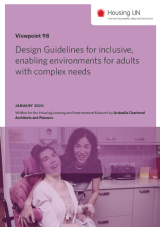
Written by Archadia Chartered Architects and Planners, this Housing LIN Viewpoint considers the current standards and typologies of specialist supported housing provision for people with profound and multiple learning disabilities.
It aims to reflect on several case studies by Archadia in both refurbishment and new build projects. Owing to evidence which suggests there is a lack of relevant design guidance; this viewpoint provides recommendations for further research needed in this area.
It calls for a collaborative approach to change legislation and planning to help create an environment where profound and multiple learning disability (PMLD) housing is more easily developed, funded and maintained.
You can find more information about housing for people with learning disabilities and autism, including case studies and reports, by visiting the Housing LIN’s Learning Disabilities topic page.
The Housing LIN can advise and support your organisation to transform your services and improve housing choices for people with complex needs, including people with a learning disability or autism. Find out more by reading their Transforming Care brochure.
Published: 23rd January 2020
Source: Housing LIN

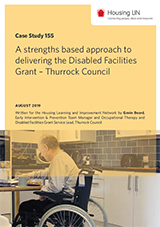
An accessible and well-adapted home can enable an adult or child with a disability to remain in their home for longer, with dignity and with pride, and the earlier this is achieved, the sooner the benefits can be realised.
Such benefits have long been recognised in Thurrock, and with the Care Act 2014 shifting the focus to early interventions that offer a more preventative approach to supporting people, the preventative benefits of accessible home adaptations were also anticipated.
This case study outlines how Thurrock Council OT and Disabled Facilities Grant (DFG) service team have adopted a strength based approach to delivering DFGs to enhance individual’s independence and provide overall improvements to their health and wellbeing.
This approach shares the virtues set out in the Royal College of Occupational Therapists’ recent guide, Adaptations without Delay: A guide to planning and delivering home adaptations differently, written by the Housing LIN.
Or click to download a .pdf copy below.
Published: 13th August 2019
Source: Housing LIN

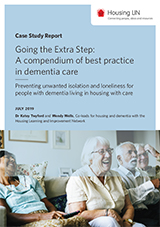
The Housing Learning and Improvement Network used this year’s Dementia Action Week 2019 to gather and share examples of extra care schemes and other housing related community services supporting people with dementia to develop meaningful relationships.
These relationships can reduce social isolation and loneliness. The examples provided range from informal arrangements supported by staff or other residents to formal service provision.
This compendium brings those examples together in one place, along with further examples of best practice that we received during Dementia Action Week. Colleagues also told us about the fantastic work they were doing as Dementia Friendly organisations, and we have included a section of those examples as well.
Or click to download a .pdf copy below.
Published: 29th July 2019
Source: Housing LIN
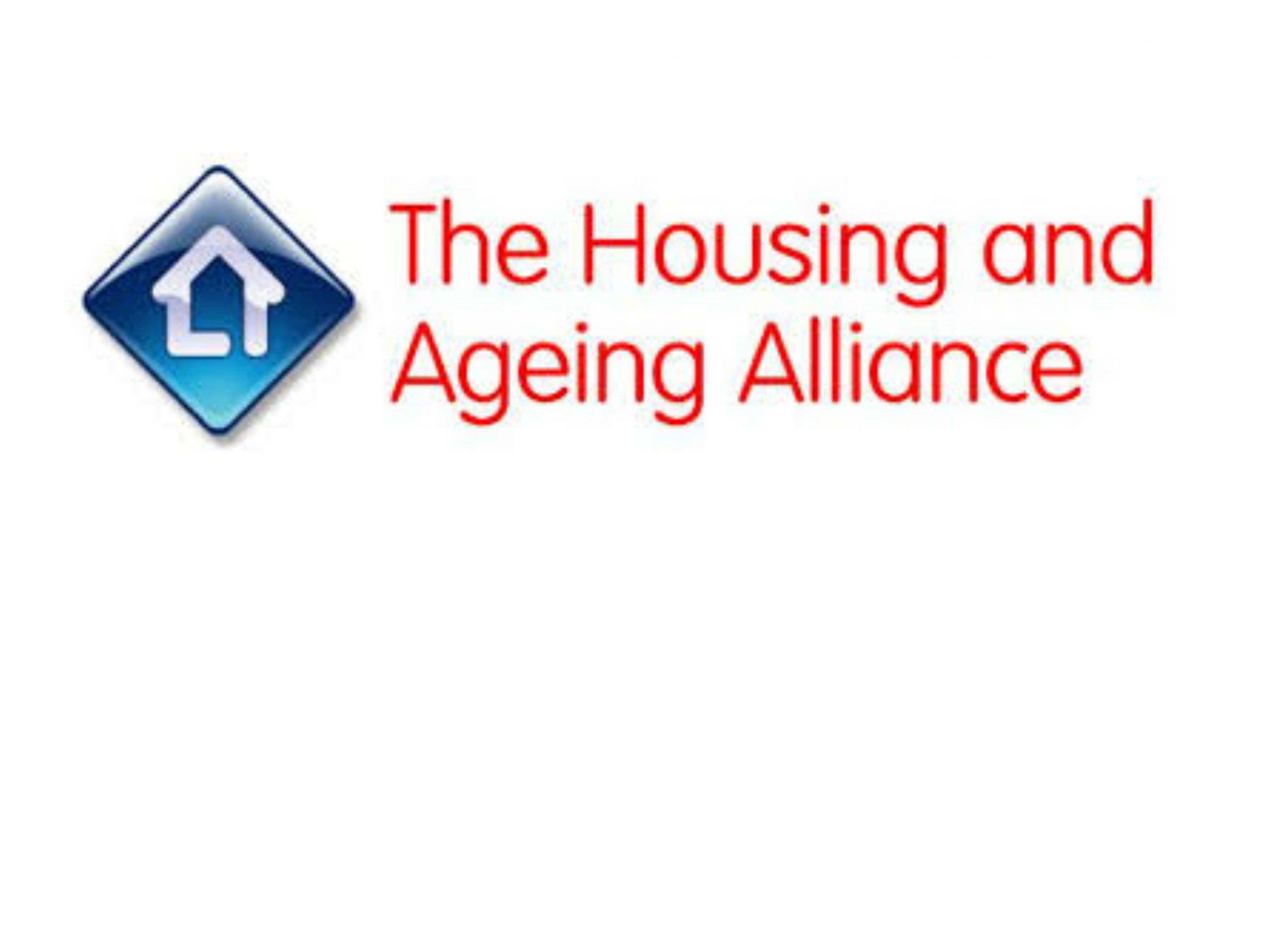
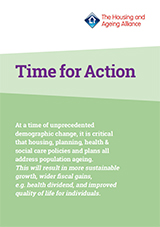
The Housing and Ageing Alliance has published its 2019 manifesto.
The manifesto builds on three proposals that inform its policy recommendations:
Click to download a .pdf copy below.
Published: 22nd July 2019
Source: Housing LIN
Story URL: https://www.housinglin.org.uk/News/Housing-and-Ageing-Alliance-publishes-2019-manifesto/
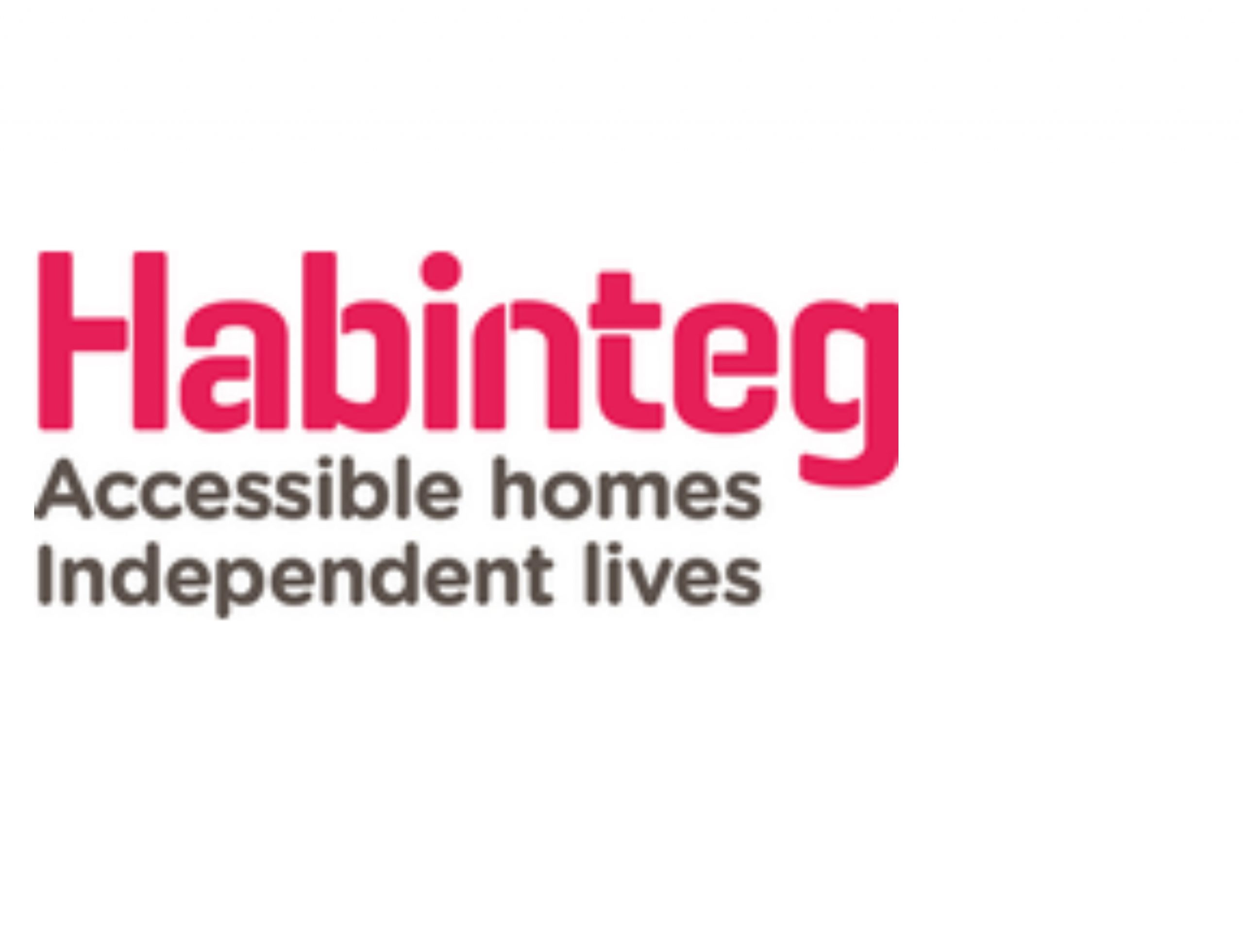
England is in dire need of more housing. The government has responded with a variety of initiatives aiming to increase and speed up supply, with the ambitious aim of delivering 300,000 new homes per year.
However, as our population ages and rates of disability increase, it is clear that to meet housing needs adequately, it is vital that we ensure the accessibility and adaptability of new homes is sufficient to meet the needs of our diverse population. Without this, disabled and older people will be increasingly excluded from ordinary aspects of daily living with negative consequences for individuals, families, communities and public services.
At present only 7% of our homes in England provide the four basic accessibility criteria to be deemed ‘visitable’ according to the English Housing Survey. Yet there are 13.9 million disabled people in the UK, with numbers continuing to rise. The NHS estimates there are 1.2m wheelchair users in the UK. Failing to address the deficit in the number of accessible and adaptable homes would mean storing up a housing crisis of a different kind if the new homes we build are not able to meet the needs of the population both now and in the future.
The analysis that Habinteg has carried out and presents in this report builds a picture of the extent to which local plans in England are set to deliver homes fit for the future.
Or click below to download a .pdf copy.
Less than a third of the local plans analysed set out a requirement to use current accessible housing standards.
During this study 322 draft and adopted local plans were identified and reviewed. The analysis shows that:
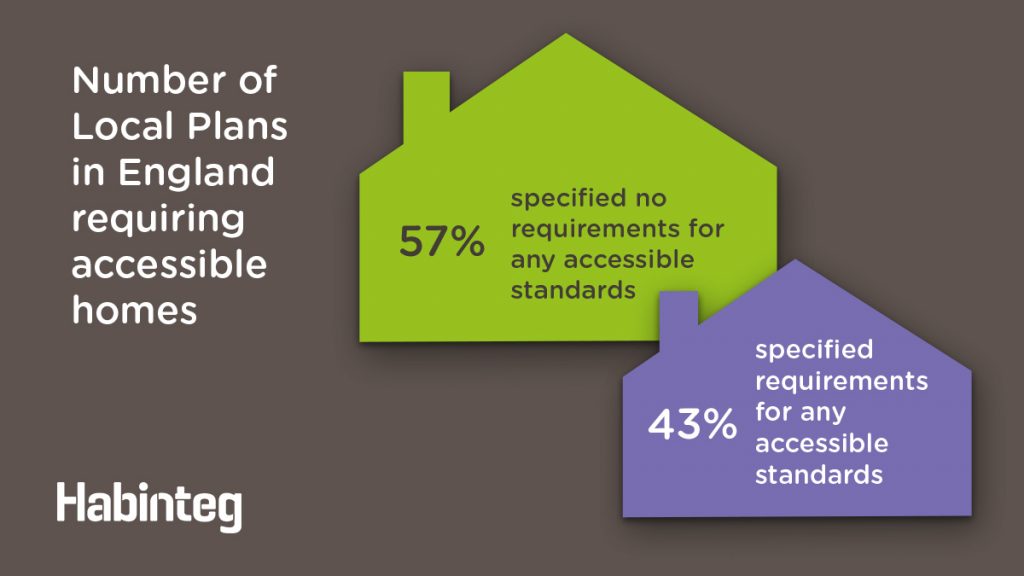
Having reviewed our findings and taken account of the challenges faced by local planning authorities, Habinteg are calling for action at both a national and local level.
Habinteg is calling on the government to:
Habinteg is calling on Local Authorities to:
Find out more
Published: June 2019
Source: Habinteg
Story Link: https://www.habinteg.org.uk/localplans/
PDF URL: https://www.habinteg.org.uk/download.cfm?doc=docm93jijm4n2151.pdf&ver=2575


While retirement communities are common in the USA and Australia, the UK has not seen demand for these types of communities preferring instead small-scale complexes.
This report, commissioned by Winckworth Sherwood and the Housing LIN, explores the views, concerns, hopes and aspirations of those developing, funding and living in retirement homes and communities, and asks about the future of retirement villages in the UK.
Published: 11th December 2018
Source: Housing LIN
Story URL: https://www.housinglin.org.uk/Topics/type/Holding-Back-the-Years-The-Rise-of-Retirement-Villages/

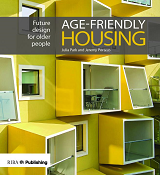
Age-Friendly Housing: Future design for older people, by RIBA bookshop, sets a new bar for the design of future housing for an ageing population. It reminds us that when we consider the hopes and needs of ‘older’ people, we are talking not about ‘other people’, but about ourselves.
Longer lifetimes are now a well-documented, global phenomenon. In 2016, 18% of UK citizens were aged 65 or above. By 2036, this is expected to rise to 25% in half of all local authorities in the UK.
Written by Julia Park, leading architect and researcher, and Jeremy Porteus, national expert in housing for older people, Age-Friendly Housing explores the significant progress that has taken place over the last decade and considers what more should be done.
Building on the influential HAPPI report published in 2009, it focuses on anticipating the needs and aspirations of the next generation of older people, the book touches on what this implies for our communities, towns and cities, as well as living spaces – illustrating the links between housing, health and social care.
Age-Friendly Housing features mainly new build housing, with a dedicated section on adaptation and refurbishment. Bringing together a wide range of informed perspectives on the subject, the book outlines the underlying design principles to be applied and the early decisions to be taken, using the case studies and contributions of some of the top names in the field to detail examples of best practice. In doing so, Park and Porteus have created a resource that will inform and empower architects, designers, planners and clients to be braver and wiser in designing with older people in mind.
Jeremy Porteus commented:
“Our ageing population demands that we have aradical rethink in the way we design and build our homes to meet our future needs and lifestyle choices. In this publication, we have captured how this can be achieved in both mainstream and specialist housing for older people, drawing on inspiring innovative examples from home and abroad.”
Discussing the book, Julia Park said:
“We hope that it represents a major step forward in the debate about how we can live better, as we live longer.”
Published: 10th July 2018
Source: Housing LIN
Story URL: https://www.housinglin.org.uk/Topics/type/RIBA-age-friendly-housing/

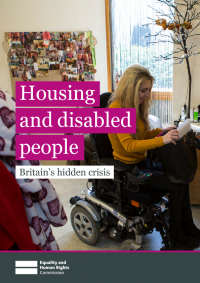
The housing inquiry looks at the current provision of accessible and adaptable housing for disabled people provided by local authorities and registered landlords.
Disabled people have a right to independent living. We wanted to find out to what extent this right was being fulfilled in the context of housing.
The report found that:
The report recommends that more adaptable homes are built for disabled people and that local and national governments engage with disabled people at planning stages.
You can also watch the British Sign Language (BSL) version of the executive summary on YouTube.
Or click to download a .pdf copy below.
Alternative versions:
Published: 11th May 2018

There is a distinct and urgent need to better provide a range of housing options to meet the wide variety of housing circumstances, aspirations and needs of people as they age.
Between 2008 and 2039, 74 per cent of projected household growth will be made up of households with someone aged 65 or older. The suitability of the housing stock is of critical importance to the health of individuals and also impacts on public spending, particularly social care and the NHS.
This report sets out in detail what is required to meet the housing needs of our ageing population and how councils around the country are innovating to support older people to live in their homes for longer and promote positive ageing.
Or click the download button below.
Published: 8th September 2017
Source: Local Government Association
Story URL: https://www.local.gov.uk/housing-our-ageing-population